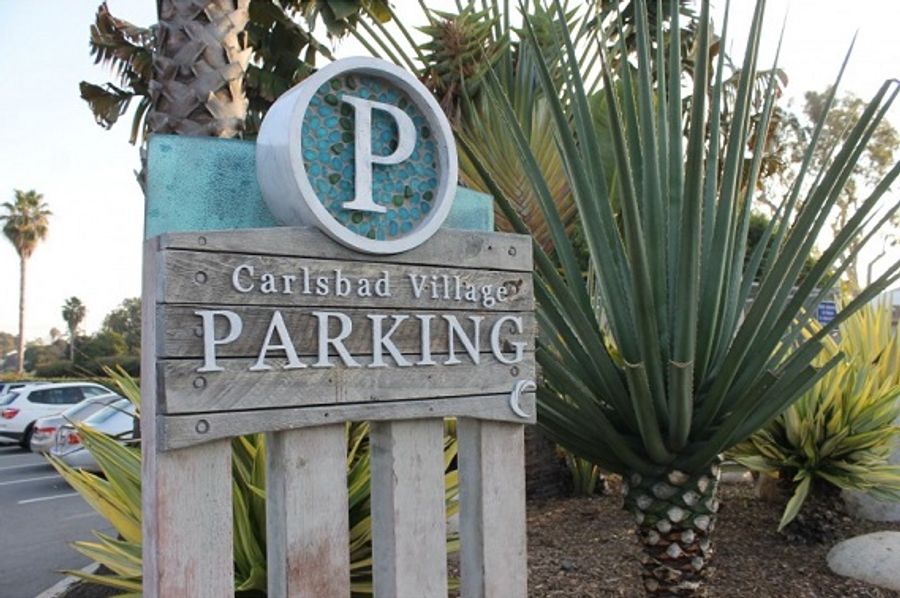The City of Carlsbad has released a draft parking management plan for managing and maximizing parking in the Village, Barrio and beach areas, following 14 months of public input and technical analysis. Copies of the draft plan are available for public review at the city’s libraries, City Hall, Senior Center and Faraday Center. The draft plan and supporting research documents can also be reviewed on the city’s website at www.carlsbadca.gov/input.
At the July 19 Planning Commission meeting, staff will present the plan, and members of the public are invited to comment. The meeting begins at 6 p.m. at City Hall, 1200 Carlsbad Village Drive.
At a Glance
- The Village, Barrio and Beach Area Parking Management Plan will serve as a road map for how the city can maximize the efficiency of existing parking, support future parking needs and encourage alternatives to driving to these busy neighborhoods.
- Find the draft online or at city facilities.
- The community may provide comments at the July 19 Planning Commission meeting or by emailing pam.drew@carlsbadca.gov.
Background
City of Carlsbad Associate Planner Pam Drew said the parking management plan is not being considered for approval at this time. Rather the city is releasing the plan for public review and comment. Along with the Planning Commission meeting, there will be an opportunity for additional public review when the plan goes before the City Council in late summer. Once input has been received from the community, Planning Commission and City Council, the plan will be revised as needed.
Findings from the parking management plan will be incorporated into the new draft of the Village and Barrio Master Plan that is currently underway. Separate public review, comment period and hearings will occur with the master plan later this year.
The parking management plan includes four sections:
- Existing conditions: Information about existing parking spaces and how they are utilized and information from the public about how they perceive the availability of parking in these areas.
- Information from other cities: Information about how other comparable California coastal cities have implemented parking solutions that could be considered by the City of Carlsbad.
- Modeling: A parking model to predict future parking needs based on anticipated changes within these neighborhoods, based the city’s recently adopted Housing Element and data for the General Plan.
- Recommended strategies and implementation plan: The plan includes ideas that could be implemented in the next few years and longer term strategies that could be implemented over the next five to 20 years. The plan also considered strategies to see how encouraging people to walk, bike and ride share could affect parking.
Study Method and Findings
The study included technical analysis and input from the public. The technical analysis consisted of studies of real-time parking use in the area capturing parking occupancy and duration, an updated inventory of on- and off-street parking spaces, review of best management practices of other comparable coastal cities and studying various models to predict future parking needs. Input included more than 2,000 on-site surveys with people within the targeted areas, an online survey with 825 responses, a community meeting, Planning Commission meeting and 11 stakeholder events with neighborhood groups and various city commissions and committees.
The main findings are:
- The inventory of all available public and private (privately-owned and dedicated to a specific property) parking spaces in the study area totaled 11,657 parking spaces.
- Demand for parking collectively peaked at 7 p.m. on a weekend in July 2016. At the peak, the average parking occupancy for the study area was 54 percent.
- High-demand areas for parking include on-street facilities west of the railroad tracks, Village Faire parking lot and on-street facilities in the Village center on Grand Avenue, Carlsbad Village Drive, and State Street.
- The parking supply is adequate but parking demand is not “balanced,” meaning parking is not always available where demand for it occurs.
- The current and future parking supply is adequate to meet demand if parking is managed with the strategies recommended in the plan.
Strategies
To maximize the amount of parking available, the study suggests several short to long-term strategies, including the following:
- Create more parking by converting some red curbs and “curb cuts” that aren’t needed to parking spots. Where possible, parallel parking spaces can be converted to angled spaces to create more parking.
- Enhance enforcement of existing parking time limits, consider changing some time limits and add time limits to commercial areas to encourage “turnover” of parking spaces that improve access to businesses.
- Encourage shared parking arrangements by identifying underutilized private parking lots and making them available for public use during certain times of the day.
- Use the parking in-lieu fee paid by developers to pay for parking management, such as shared parking and improvements that reduce parking demand.
- Make it easier to find parking through an app that shows where available spaces are located.
- Encourage ride sharing with dedicated passenger pick-up/drop-off locations to reduce individual parking needs.
A parking structure was not recommended at this time because parking demand is spread throughout the study area and would instead require a series of smaller parking structures to effectively meet the parking needs. Instead, parking management strategies as well as solutions to reduce parking demand offer a more cost-effective, adaptable solution.
The study recommends that the city collect and analyze parking data regularly to understand current demand for and utilization of parking and to make timely decisions on how best to manage parking.
More Information
- Contact Associate Planner Pam Drew, 760-602-4644, pam.drew@carlsbadca.gov
- Visit the city’s website
- Sign up to receive parking plan updates via email
